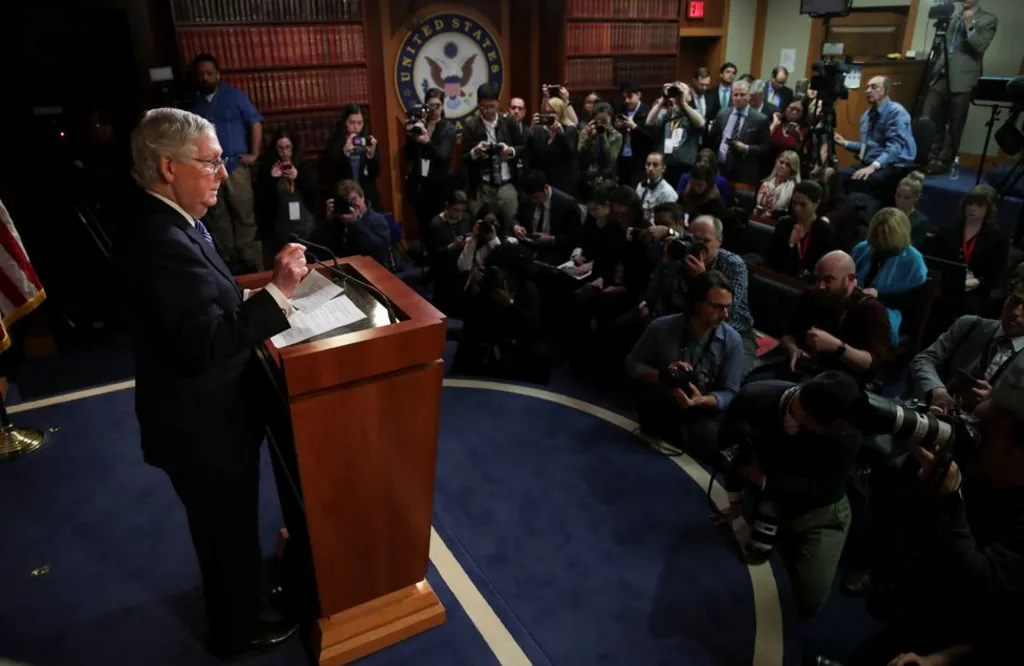When Donald Trump lost to Joe Biden in 2020, many saw it as the end of his political career.
If Trump wins the election on Tuesday, he would become only the second person in history to return to the White House after losing a re-election bid.
'He gets knocked down and comes back even more determined,' said Bryan Lanza, a longtime political adviser to Trump since his 2016 campaign. 'No one should be surprised by this comeback.'
Such a remarkable turnaround for the 78-year-old former president would bring him back to the White House as a figure with a resilient political persona, a strategic plan, and a solid base of loyal supporters.
Four years ago, Donald Trump seemed politically defeated. His Democratic opponent, Joe Biden, had beaten him by a solid electoral margin in the 2020 presidential election. Courts swiftly dismissed his efforts to challenge the results. His final rally, where he urged supporters to march to the Capitol as lawmakers certified the election, ended in a violent attack on the building, with officials scrambling for safety and hundreds of law enforcement officers injured.
High-profile resignations followed, including Education Secretary Betsy DeVos and Transportation Secretary Elaine Chao. 'There is no mistaking the impact your rhetoric had on the situation, and it is the inflection point for me,' DeVos wrote in her resignation letter.
Even Trump’s close ally, Senator Lindsey Graham, publicly distanced himself, saying, 'Count me out. Enough is enough.'
The backlash spread beyond politics. Major corporations, like American Express, Microsoft, Nike, and Walgreens, halted support for Republicans who challenged the 2020 election results.
On the day of Biden’s inauguration, Trump skipped the ceremony—a break from 152 years of tradition—and flew to Mar-a-Lago with a small group of family and aides. His mood was reportedly bleak, according to Meridith McGraw, author of Trump in Exile, who described him as 'angry, frustrated, unsure of how to spend his days and without a plan for his political future.'
Media commentary at the time reflected this uncertainty. Some analysts and op-eds suggested his political career was over. 'And just like that, the bold, combustible and sometimes brilliant political career of Donald J. Trump comes to an end,' wrote one opinion piece in The Hill. The New York Times was equally blunt in January 2021: 'President Donald J. Trump: The End.
"But before leaving for Florida on Inauguration Day, Trump hinted at a potential return.
'We love you,' he told supporters gathered on the tarmac at a Maryland Air Force base. 'We will be back in some form.'
Just a week later, it became clear that Trump’s influence was far from over, as the Republican Party began rallying around him again. California Congressman Kevin McCarthy, the House Republican leader, visited Trump at Mar-a-Lago, posing for a photo with the former president, who looked noticeably pleased.
In the immediate aftermath of the January 6 attack, McCarthy had stated that Trump 'bears responsibility' for the violence and even recommended a formal censure in Congress. But now, he was pledging to work with Trump to secure a Republican majority in the upcoming midterm elections.
Though the Democrat-controlled Senate was preparing for Trump’s impeachment trial, McCarthy’s visit underscored Trump’s enduring influence. As one of the most powerful Republicans, McCarthy’s actions signaled that he still viewed Trump as a critical force in the party.
'McCarthy’s visit really opened the door for Trump,' noted Meridith McGraw. 'It was like giving Republicans who had criticized Trump permission to forgive and move on.'
Ultimately, Trump’s Senate trial ended in acquittal, as most Republican senators, including critics like Mitch McConnell, voted against conviction, which could have barred Trump from future office.












0 Comments